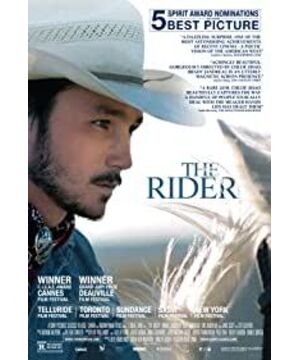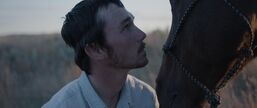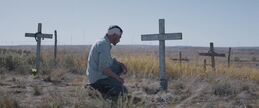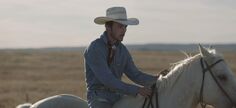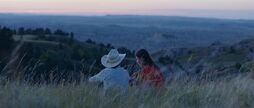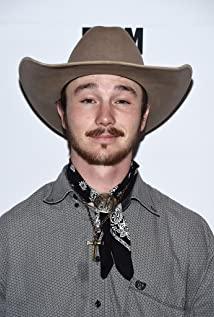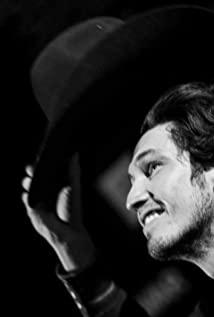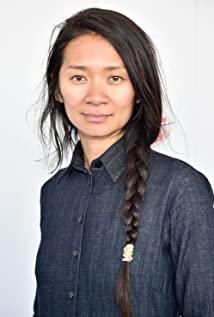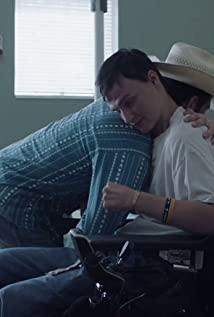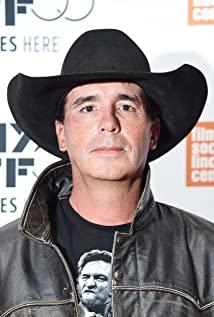Spinoza said that desire is there from the beginning. To have desire is to exist. Every being wants to continue to exist, that is to live, whether he is aware of it or not. And as long as it exists, it will pursue certain things. Desire always comes first. We don't desire things because they are good; they are good because I desire them.
As the "born cowboys" riders in "The Rider", a hit film at the Pingyao Film Festival and the American Independent Film Festival, showed,
I would rather be immersed in the pain of riding than give up my life on horseback and let go of the reins that I can barely hold. Before talking about this calm and atmospheric new film, we must give some words to the Chinese director of the film, Zhao Ting.
Zhao Ting was born in China, the son of actress Song Dandan, and went to the United States and the United States to start her artistic career at a young age. It's hard to imagine that a young female director would give up her expertise to make a film that depicts male totems. In "Knight" there is no tenderness, no publicity of love, and the peculiar delicacy of female perspective is replaced by the majestic natural light photography that pays tribute to Terrence Malick.
The picture is filled with the wilderness of Wyoming on the Indian reservation, but it is contrasted with sad, frail cowboys.
In the character design of the male protagonist, we see Zhao Ting's unique temperament. Why make a cowboy movie? Zhao Ting's statement is that she was attracted by the personal charm of Brady Zandro, who played the leading role in the film.
I went to communicate with him and asked him what was on the horse, and his answer shocked me. "This is what God put on the horse's back to allow him to hold the saddle."
Two years later, the real-life Brady Jandro was injured and could no longer ride, and so the story began. "I believe that God has given all of us a different mission,
For a horse, it is running on the grassland, and for a cowboy, it is riding. "This sentence is blurted out by the righteous words of the hero Brady Zandro in "The Knight."
Don't ride a horse, or die. This is a cowboy's declaration of life. The film begins by showing Brady Jandro's vulnerability. The huge, terrifying scar on his head heralded the end of his horseback career.
The wound will heal, but the soul cannot be reshaped. In the first act of the film, there is a very impressive scene, a group of cowboys, Brady Jandro's friends in the wilderness, in front of the bonfire, dancing wildly, talking about old times.
The atmosphere of laughter was gradually replaced by a cold silence. They talked about the pain caused by horseback riding, especially the bullfighting or the horse-training competition, especially those friends and relatives who left them because of this, which made this reminiscence filled with a sad atmosphere. . This wedge of grief is firmly embedded in the story, bringing with it a constant flow of emotion.
"Knight" tragically and cruelly presents the audience with the weak underbelly of the riders and the scars that cannot be healed. The main line of the story revolves around whether or not Brady Jandro is back on horseback, the doctor says, ride again and you'll die. Brady said, don't ride, I'm dead.
We have witnessed Brady's dilemma. The director deliberately left the dilemma to the protagonist and let him choose, but no matter which side he ultimately chooses, he will suffer unbearable losses. So, we saw the riders who went to the supermarket to work in order to survive, take care of their families;
The mechanical work there consumed his will, fans who came to take photos reminded him of his identity as a rider, and friends told him not to give up. Then, we saw the rider who was going to sell his harness;
Because he could no longer ride a horse, but in order to have a good horse, he contradicted himself and made the move, and finally hesitated. After apologizing, he left with the harness, and the moment he slammed out the door, his panicked heart received There was a moment of silence, and then back to confusion. Only when Brady takes care of his brothers, idols, and friends can he find his former glory and joy. His friend, a former talented player, is now injured and has become a disabled person who cannot take care of himself.
The happiest thing for them is to watch their original dynamic and glorious past together. In the mobile phone video, they are omnipotent, arrogant and beloved heroes, but the reality is cold and the truth kills. Now one of them can't get back on the horse, and the other can't walk at all. Brady felt the passing of his life, his ego dissipated, he needed to ride a horse, and only when he was with a horse could he regain his power and be respected.
Brady is quiet in reality, but he is very helpful in communicating with the horses. The horse training scene is a rare highlight moment in the film. Through the movement of the camera, including large-scale rotation and follow-up, you seem to be able to perceive the communication between humans and animals, especially the trust that accompanies empathy, mutual understanding, and release of each other's nature and energy.
Through the presentation of several scenes of horse training, "Knight" successfully persuaded the audience that the male protagonist can surpass himself and feel the vastness of nature and the existence of himself if he can run with the horse on the grassland. But the good times didn't last long, and persistence brought complications. A fainting forced the male protagonist to face the final choice: leave the horse alive, or exchange his life for the last ride. Can a cowboy be called a cowboy if he can't ride a horse?
If I can't be a cowboy, what can I do, who am I? A dilemma is in front of you, to be yourself, to fulfill others, or to grow up.
"The Knight" makes it easy to relate to Darren Aronofsky's "The Wrestler."
"The Wrestling King" tells the story of a wrestler who was tortured by a heart attack and had to give up wrestling in order to save his life. But he has been wrestling all his life. Because of this sport, he has given up his family, his love, and his family. Wrestling is the only way he can make a living. In the end, he returned to the game, once again sending his blood to the audience, revealing his wounds, in exchange for their hysterical praise.
The male protagonists in "The Wrestling King" and "The Knight" both faced life-threatening choices, but in the end they made completely opposite choices for various reasons.
There is an unmeasurable and unspeakable evil in human beings, Bergman said. The evil he speaks of can feed pain and sustain spirituality. Many people's so-called careers drain their lives and continue and support them with pain. But some pain, it's just their habit of never trying to make any improvements. So they live in their own cages. Heroism, ideals, dreams, materiality, lust, etc., are more like this. People who suffer from prison will want to break through, but most of the time, they are a fortress of comfort and bring arrogance to arrogance. This is a prison, a world imagined in the heart. People are often imprisoned in it, unable to move an inch, and love generates madness.
Only by facing the charm of desire can we see the true self. Desire is not what we have, but what we are. When the group is present, the individual obeys the group; when the individual and the group exist independently at a certain distance, he regains his senses.
"Knight" expresses the difficulty of letting go and the preciousness of leaving through the story of a rider. It tells us that not tormenting ourselves with habits and emotions is liberation in the present moment.
Persistence, sometimes, is an evil. Let go, we can all find another possibility of self-evidence.
View more about The Rider reviews


